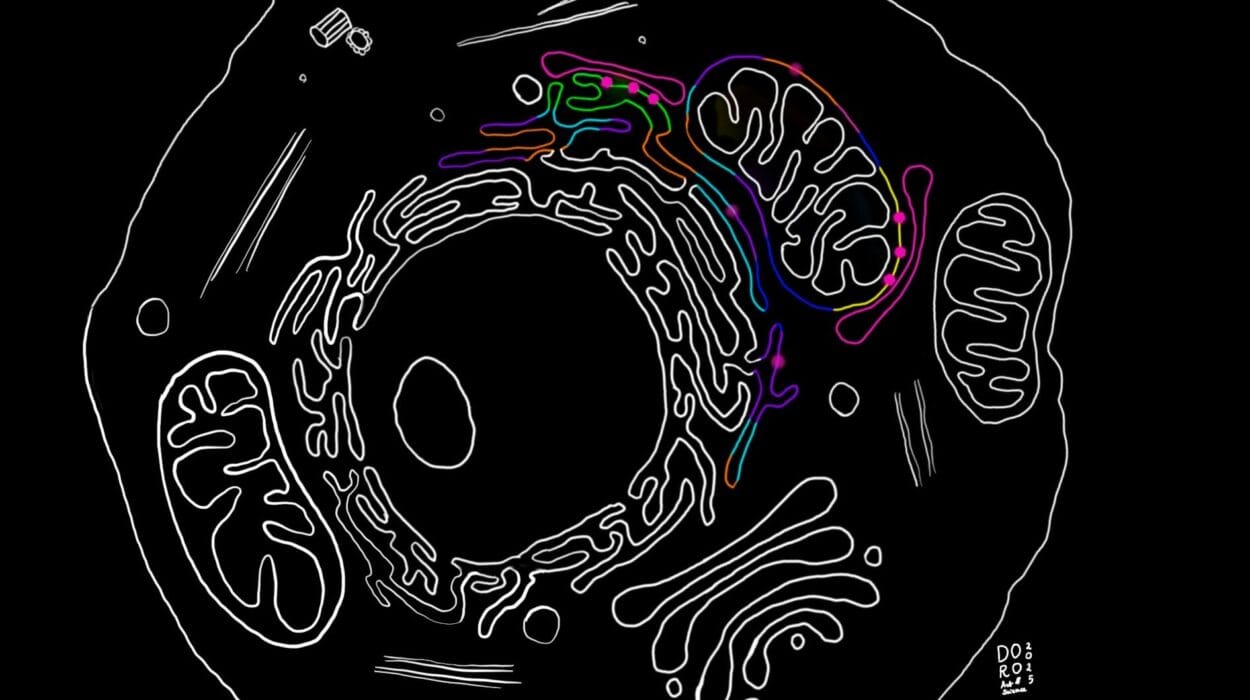For many people, the menstrual cycle feels like a built-in rhythm of life—a predictable flow that arrives each month, sometimes inconvenient but familiar. Yet for millions of women and people who menstruate around the world, this rhythm doesn’t always keep time. Periods may come too early, too late, or not at all. The bleeding may be heavier than expected, or sometimes barely there. For some, irregular periods are nothing more than a passing phase, the body’s response to stress, travel, or hormonal changes. For others, they are the first sign of deeper health concerns that demand attention.
Understanding irregular periods is about more than managing calendars or planning pregnancies. It is about tuning into the body’s signals, learning when to be patient, and knowing when to seek medical care. This journey often blends science with emotion: the frustration of unpredictability, the worry of “what’s wrong with me,” and the relief of answers after months or even years of uncertainty.
What is an Irregular Period?
To appreciate what makes a period irregular, we first need to understand what is considered “regular.” A typical menstrual cycle lasts between 21 and 35 days, counted from the first day of one period to the first day of the next. Most people bleed for about 3 to 7 days.
But “typical” is not the same as universal. Every body has its own pattern. For some, 25 days is normal. For others, 33 days feels routine. Regularity doesn’t mean textbook perfection; it means predictability—knowing your body’s usual rhythm and seeing it repeat over time.
An irregular period, therefore, is any cycle that falls outside this personal pattern. It might mean:
- Cycles that are consistently shorter than 21 days or longer than 35 days.
- Periods that skip months altogether.
- Bleeding that lasts much longer or shorter than usual.
- Flows that are far heavier or lighter than your baseline.
Irregularity isn’t always alarming. During puberty, cycles can take a few years to settle. Around menopause, they often become erratic before stopping completely. Even in adulthood, stress, diet, travel, and illness can temporarily disrupt cycles. The challenge lies in distinguishing what’s temporary from what signals a deeper imbalance.
Why Do Periods Become Irregular?
Menstruation is the outward sign of a complex internal symphony, orchestrated by hormones and influenced by nearly every system in the body. When the balance shifts, the cycle may stumble.
Hormonal Fluctuations
Hormones are the conductors of the menstrual cycle. Estrogen and progesterone rise and fall in carefully timed waves, triggering ovulation and preparing the uterus for pregnancy. Disruptions in these rhythms—whether from natural life stages, medical conditions, or external factors—are a major cause of irregular periods.
Life Stages
Puberty often brings unpredictable cycles as the body “learns” its hormonal rhythm. Menopause, the gradual end of reproductive years, is also marked by irregularity. Pregnancy, breastfeeding, and the postpartum period bring their own temporary pauses or variations.
Stress and Lifestyle
Emotional stress, sleep disturbances, sudden weight changes, or extreme exercise can all influence hormones. The brain’s hypothalamus, which regulates the menstrual cycle, is highly sensitive to these factors. What happens in your daily life can echo through your cycle.
Medical Conditions
Several health conditions are known to disrupt menstrual regularity. These include:
- Polycystic Ovary Syndrome (PCOS): A common hormonal disorder leading to missed or infrequent periods, often coupled with symptoms like acne or excess hair growth.
- Thyroid Disorders: Both overactive and underactive thyroid function can disturb cycles.
- Uterine Fibroids or Polyps: These growths may cause heavy, prolonged, or irregular bleeding.
- Endometriosis: Though often associated with pain, it may also influence cycle regularity.
- Bleeding Disorders: Rare but significant, they can make periods unusually heavy or unpredictable.
Medications and Contraceptives
Hormonal birth control, whether pills, patches, injections, or intrauterine devices (IUDs), can change menstrual patterns. Some methods lead to lighter or absent periods, while others cause spotting or irregular bleeding. Certain medications for mental health, blood pressure, or chronic illness can also have side effects that influence cycles.
When Should You Worry?
The occasional irregular period may not be cause for concern. Bodies are adaptable, and one missed or early period often resolves on its own. But persistent irregularity—or sudden, dramatic changes in your cycle—should never be ignored.
You should consider seeking medical care if:
- Your cycles are consistently shorter than 21 days or longer than 35 days.
- You miss three or more periods in a row without explanation.
- Your periods suddenly stop and you are not pregnant, breastfeeding, or nearing menopause.
- Bleeding is unusually heavy, requiring frequent pad or tampon changes every hour.
- Periods last much longer than 7 days.
- You experience severe pain, dizziness, or fatigue during menstruation.
- You notice other symptoms such as excessive hair growth, unexplained weight changes, or nipple discharge.
These signs may indicate underlying conditions that need evaluation. While not all causes are serious, some can affect long-term health or fertility if left untreated.
The Emotional Weight of Irregular Periods
Beyond the biological facts, irregular periods carry emotional and psychological burdens. The unpredictability can create constant anxiety: wondering when the next period will come, fearing leaks during important events, or dreading painful cramps that arrive without warning. For those trying to conceive, irregular cycles add layers of stress, making it harder to track ovulation and plan pregnancies.
Cultural and social expectations amplify these feelings. In many communities, menstruation is still shrouded in silence or stigma. Talking about irregular periods may feel embarrassing, leading many to suffer in private. The shame can be heavier than the physical symptoms themselves.
Recognizing the emotional impact is essential. Irregular periods are not just a medical issue but a lived experience that affects confidence, relationships, and overall well-being. Compassion—from oneself and from healthcare providers—is a vital part of care.
What Happens at the Doctor’s Office?
Seeking medical care for irregular periods can feel intimidating, but knowing what to expect can ease the process. A doctor’s role is not just to treat but to listen, investigate, and provide clarity.
Medical History
The first step is often a detailed discussion. Your doctor may ask about:
- The age when your periods began.
- The typical length and frequency of your cycles.
- Changes you have noticed over time.
- Any associated symptoms like pain, weight changes, or abnormal hair growth.
- Your medical history, medications, and lifestyle habits.
- Your sexual and reproductive history.
Keeping a menstrual diary—recording the start and end dates of periods, flow intensity, and symptoms—can be incredibly helpful for this conversation.
Physical Examination
A physical exam may include checking vital signs, weight, and signs of hormonal imbalances (such as acne or hair growth patterns). A pelvic exam may be recommended to look for structural issues like fibroids or polyps.
Diagnostic Tests
Depending on your symptoms, doctors may recommend specific tests to uncover the root cause.
Tests That Matter
Blood Tests
Bloodwork is often the first step. Common tests include:
- Hormone levels: Estrogen, progesterone, follicle-stimulating hormone (FSH), and luteinizing hormone (LH) provide insight into reproductive function.
- Thyroid function tests: Measuring TSH, T3, and T4 to check for thyroid disorders.
- Prolactin levels: High levels can disrupt cycles.
- Androgen levels: Elevated male hormones may indicate PCOS.
- Blood count and iron studies: To assess anemia from heavy bleeding.
Imaging Tests
- Ultrasound: A transvaginal or pelvic ultrasound can detect uterine fibroids, ovarian cysts, or other abnormalities.
- MRI: Rarely, when deeper evaluation of reproductive structures is needed.
Specialized Tests
- Pap smear: To screen for cervical changes or infections.
- Endometrial biopsy: In cases of unexplained heavy bleeding, sampling the uterine lining may be necessary.
- Hysteroscopy: A thin scope allows doctors to directly view the uterine cavity.
Each test is chosen based on individual symptoms, not as a one-size-fits-all approach. The goal is to identify patterns and uncover the root cause of irregularity.
Treatment Options
Treatment depends entirely on the cause. For some, reassurance and lifestyle changes are enough. For others, medical or surgical interventions may be needed.
Lifestyle Adjustments
Managing stress, maintaining a healthy weight, eating a balanced diet, and ensuring adequate rest can stabilize cycles. Moderating excessive exercise may also help.
Medications
- Hormonal therapies: Birth control pills, hormonal IUDs, or progesterone supplements can regulate cycles.
- Thyroid medications: To correct underactive or overactive thyroid function.
- Metformin: Often prescribed for PCOS to improve insulin sensitivity and restore ovulation.
- Iron supplements: For those with anemia caused by heavy bleeding.
Surgical Interventions
For fibroids, polyps, or structural abnormalities, procedures such as hysteroscopy or myomectomy may be recommended. Surgery is usually considered when other treatments fail or when bleeding is severe.
When Fertility is a Concern
For those hoping to conceive, irregular periods can be especially challenging. Unpredictable ovulation makes timing difficult, but medical support can help. Doctors may recommend ovulation-tracking methods, fertility medications, or assisted reproductive technologies like in vitro fertilization (IVF). The emotional journey of infertility often intersects with irregular cycles, requiring both medical treatment and emotional support.
Living with Irregular Periods
Irregular periods may not always be fully “curable,” especially when tied to life stages or chronic conditions. But with proper understanding and care, they can be managed. This management is not just medical but holistic, addressing the body, mind, and environment.
Open communication with healthcare providers, support from loved ones, and awareness of one’s own body rhythms can transform irregular periods from a source of fear into a manageable aspect of health. Education and self-advocacy play crucial roles: knowing when something isn’t normal, when to ask questions, and when to push for answers.
The Bigger Picture: Why Menstrual Health Matters
Menstrual irregularities are not only personal health issues but also public health concerns. When large numbers of people suffer in silence, unable to access care or information, the consequences ripple outward. Missed school and work days, untreated anemia, and fertility challenges all stem from menstrual health being overlooked.
Recognizing menstruation as a vital sign of overall health—like blood pressure or heart rate—can change how societies approach it. Irregular periods should not be dismissed as trivial or shameful but seen as important indicators of well-being.
Conclusion: Listening to the Body
Irregular periods can be unsettling, inconvenient, and at times frightening. They may be temporary quirks of life or signals of deeper medical conditions. The key lies in listening—to your body, to your instincts, and to trusted healthcare providers.
Seeing a doctor is not about overreacting; it is about respecting your body’s voice. The tests that matter are not meant to overwhelm but to guide, bringing clarity to uncertainty.
Ultimately, irregular periods remind us that the menstrual cycle is not just about reproduction—it is about health, balance, and connection to the body’s inner rhythms. By understanding, addressing, and respecting these signals, we honor not only menstrual health but overall well-being.






